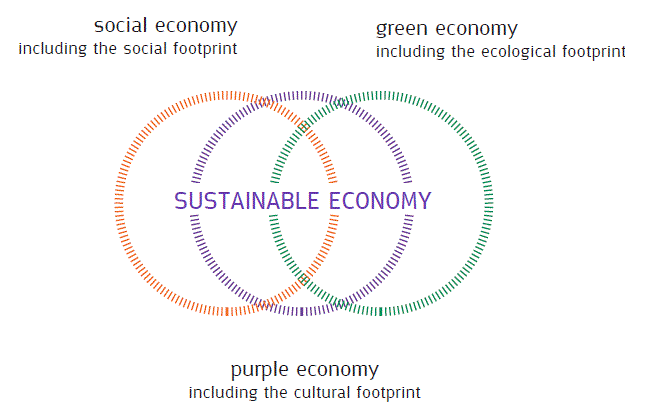“For a cultural revival of the economy”
Nobel prize winners, leading European Union officials, cultural icons, and GESAC’s very own Vice President, Jean-Noël Tronc, have written a manifesto that insists leaders put culture at the heart of Europe’s economic recovery in the wake of COVID-19.
The manifesto, which has been published in various leading European newspapers, offers guidelines to achieve a society that “fully expresses its human character”.
It declares that: “Despite its growing importance, culture has not been sufficiently considered as an ecosystem; it remains perceived from a collateral angle.”
Cultural and creative industries (CCIs) was highlighted as one of 14 key ecosystems by the European Commission in the build up to its Next Generation EU recovery fund.
However, it remains unclear how much funding the sector will receive, and GESAC, along with many other cultural and creative organisations, has expressed our disappointment at the lack of targeted funding for individual creators, who have been hit particularly hard by this crisis.
Read the full manifesto and list of signatories below.

“The current crisis and the restrictions that it imposes have emphasised the importance that each one of us gives to the our environment. At the same time, they highlight all dimensions of this environment, formed by culture, nature and social ties. This corresponds with one of the observations made over many years by the international community – and in particular by UNESCO -, recognising that culture has its place in the concept of sustainable development.
This cultural dimension in question shapes our living environment; it is inseparable from the daily economy and it echos strongly in our current circumstances. Growth in the value added by cultural components has become a powerful trend that is already finding its place in public policies and business strategies. In this context, the places that best preserve the original elements of their identity will be able to benefit, if they succeed in developing them successfully, from a true ‘competitive advantage’.
This cultural revitalisation of our local environment does not mean a lack of interest in distant societies. Our appetite for other cultures and the need to know them better cannot help but continue expanding into the world of tomorrow. All territories, including those with less economic and technological resources, may have a cultural message to convey. Therefore, it is about offering each of them the opportunity to show what makes them unique, in a world whose standardisation would signal impoverishment and devitalisation.
Despite its growing importance, culture has not been sufficiently considered as an ecosystem; it remains perceived from a collateral angle. Cities and towns are emblematic of this fact. Public and private spaces must be functional and in harmony with the aspirations of their inhabitants. Architecture and design can contribute to reinventing an urbanised world that encompasses the lines of ecology, coexistence and beauty.
This dynamic will encourage a continuous market of cultural appreciation for our surroundings. Furthermore, enthusiasm for the art of living will continue to rise. This is true in the case of food, and how going forward we would like to make it simpler for the planet, more just and meaningful. This will also apply to tourism, which must take a more responsible role. As for digital technologies, their credibility will increase through the quality of the content created and disseminated.
In this movement, the purple economy proposes a change of scale and perception, favouring a systemic approach where the diverse activities and cultural factors (education, information, communication and all goods with a strong imaginary and sensitive component) are no longer considered in isolation.
At the cost of this transformation, the economy, imbued with the full potential of culture, will fully express its human character. This evolution will pave the way for global prosperity that’s more respectful of the natural environment and more equally distributed. What was once an opportunity must now become the present of sustainable development.”
Signed,
Ferran Adrià, Chef – Massimiliano Alajmo, Chef – Elena Arzak, Chef – Rafael Aranda, Architect (Pritzker Prize 2017) – Shigeru Ban, Architect (Pritzker Prize 2014) – Massimo Bottura, Chef, European Commissioner for Innovation, Research, Culture, Education and Youth – Jérôme Gouadain, Secretary General of the Prix Versailles – Ángel Gurría, Secretary General of the Organization for Economic Cooperation and Development (OECD) – Iris van Herpen, Fashion designer – Kengo Kuma, Architect – Pascal Lamy, President of Les Musiciens du Louvre – Eric Maskin, 2007 Nobel Prize in Economics – Jean Nouvel, Architect (Pritzker Prize 2008) – Edmund Phelps, 2006 Nobel Prize in Economics – Renzo Piano, Architect (1998 Pritzker Prize) – AnneSophie Pic, Chef – Carme Pigem, Architect (Pritzker Prize 2017) – Christopher Pissarides, 2010 Nobel Prize in Economics – Zurab Pololikashvili, Secretary General of the World Tourism Organization (UNWTO) – David Sassoli, Presiden of the European Parliament – Vera Songwe, Executive Secretary of the United Nations Economic Commission for Africa – Jean-Noël Tronc, General Manager of the Society of Authors, Composers and Publishers of Music (Sacem) – Ramón Vilalta, Architect (Pritzker Prize 2017).
Photo: MARdF